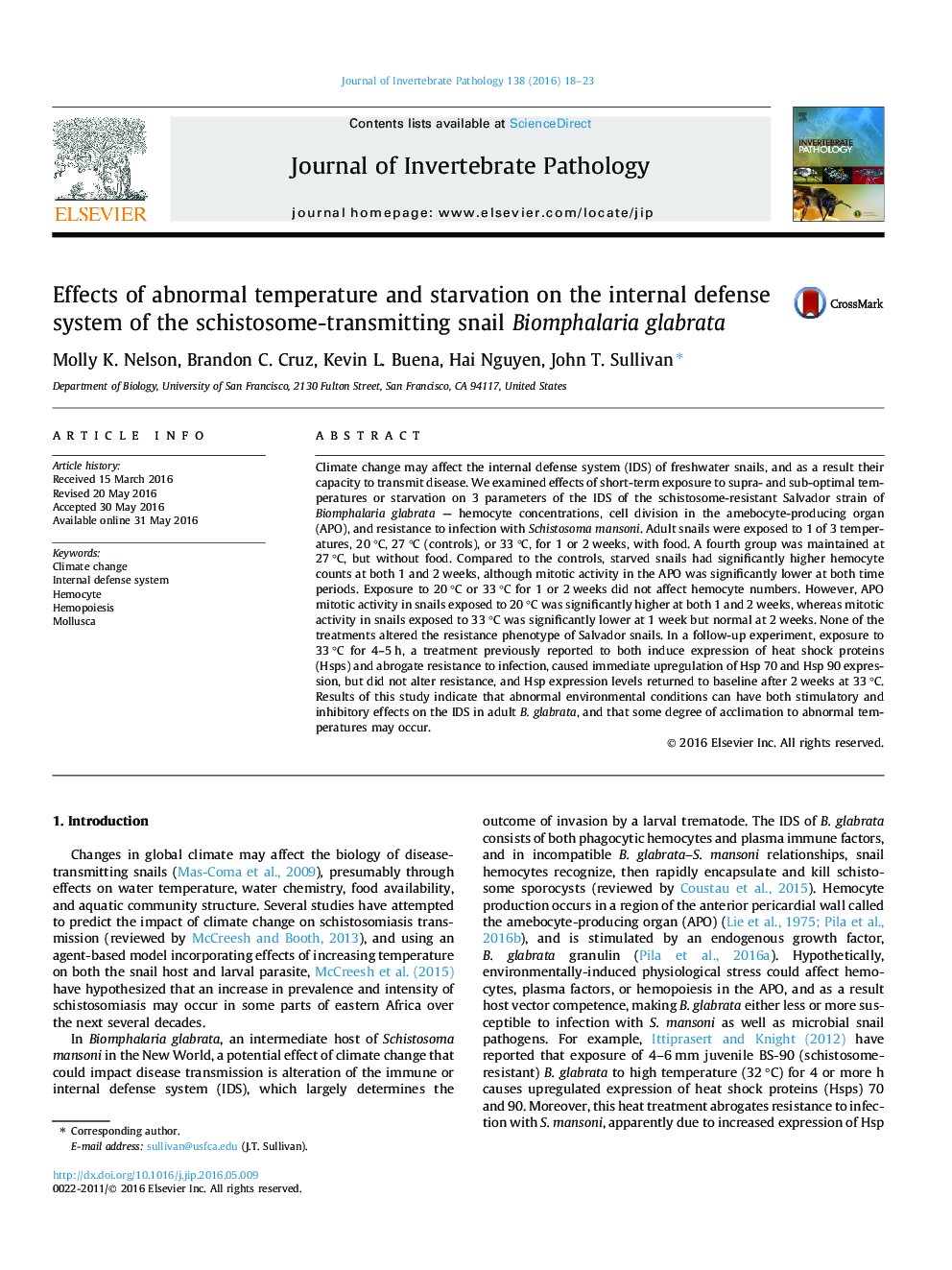| کد مقاله | کد نشریه | سال انتشار | مقاله انگلیسی | نسخه تمام متن |
|---|---|---|---|---|
| 4557494 | 1628214 | 2016 | 6 صفحه PDF | دانلود رایگان |
• Abnormal environmental conditions can affect the snail internal defense system.
• Some acclimation occurs with prolonged exposure to abnormal temperature.
• Resistance to schistosome infection is unaffected by temperature or starvation.
Climate change may affect the internal defense system (IDS) of freshwater snails, and as a result their capacity to transmit disease. We examined effects of short-term exposure to supra- and sub-optimal temperatures or starvation on 3 parameters of the IDS of the schistosome-resistant Salvador strain of Biomphalaria glabrata — hemocyte concentrations, cell division in the amebocyte-producing organ (APO), and resistance to infection with Schistosoma mansoni. Adult snails were exposed to 1 of 3 temperatures, 20 °C, 27 °C (controls), or 33 °C, for 1 or 2 weeks, with food. A fourth group was maintained at 27 °C, but without food. Compared to the controls, starved snails had significantly higher hemocyte counts at both 1 and 2 weeks, although mitotic activity in the APO was significantly lower at both time periods. Exposure to 20 °C or 33 °C for 1 or 2 weeks did not affect hemocyte numbers. However, APO mitotic activity in snails exposed to 20 °C was significantly higher at both 1 and 2 weeks, whereas mitotic activity in snails exposed to 33 °C was significantly lower at 1 week but normal at 2 weeks. None of the treatments altered the resistance phenotype of Salvador snails. In a follow-up experiment, exposure to 33 °C for 4–5 h, a treatment previously reported to both induce expression of heat shock proteins (Hsps) and abrogate resistance to infection, caused immediate upregulation of Hsp 70 and Hsp 90 expression, but did not alter resistance, and Hsp expression levels returned to baseline after 2 weeks at 33 °C. Results of this study indicate that abnormal environmental conditions can have both stimulatory and inhibitory effects on the IDS in adult B. glabrata, and that some degree of acclimation to abnormal temperatures may occur.
Figure optionsDownload as PowerPoint slide
Journal: Journal of Invertebrate Pathology - Volume 138, July 2016, Pages 18–23
